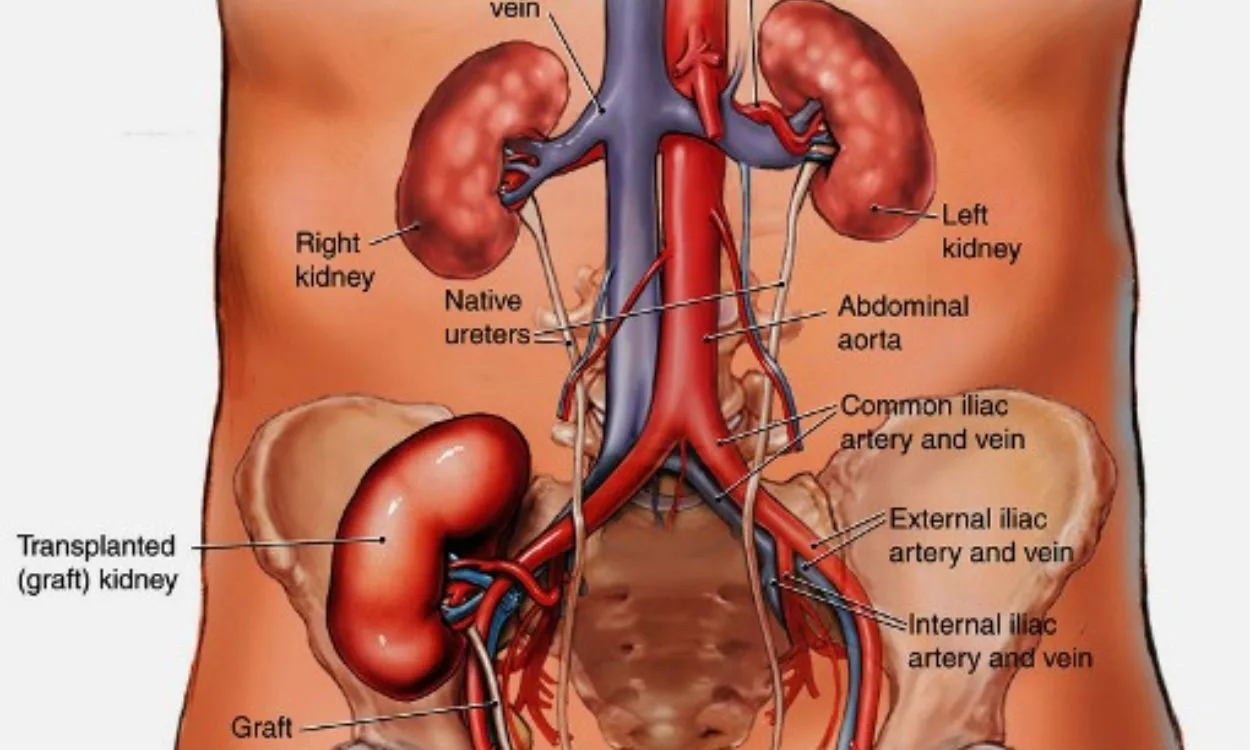How Long Does a Transplanted Kidney Last?
A kidney transplant is a life-saving procedure for individuals with end-stage renal disease (ESRD) or kidney failure. It involves replacing a diseased or non-functioning kidney with a healthy kidney from a donor. While kidney transplantation can significantly improve the quality of life and increase the lifespan of the recipient, it is essential to understand the lifespan of a transplanted kidney.
Understanding Transplanted Kidney Lifespan
- Factors Influencing Transplanted Kidney Lifespan:
- Immunosuppressive Medications: After a kidney transplant, recipients need to take immunosuppressive medications to prevent their immune system from rejecting the transplanted kidney. The effectiveness of these medications can vary among individuals, and the prolonged use of these medications can have side effects that may impact the lifespan of the transplanted kidney.
- Donor Source: The source of the kidney donor can also influence the lifespan of the transplanted kidney. Living donor kidneys generally have better outcomes compared to deceased donor kidneys.
- Recipient Factors: The overall health, age, and underlying medical conditions of the recipient can impact the longevity of the transplanted kidney. Comorbidities such as diabetes or hypertension may affect the kidney’s function over time.
- Quality of Match: The compatibility between the donor and recipient, including blood type, tissue matching, and antibody levels, can affect the long-term success of the kidney transplant.
- Average Lifespan of a Transplanted Kidney:
- According to research and statistics, the average lifespan of a transplanted kidney is around 10 to 15 years. However, this estimate can vary widely depending on the factors mentioned above.
- Some kidney transplants can last for several decades, especially in cases where the recipient is younger, the donor is a close match, and the recipient follows a healthy lifestyle and adheres to medication and follow-up protocols.
- On the other hand, certain factors may lead to a shorter lifespan for the transplanted kidney, such as chronic rejection, infection, recurrence of the underlying kidney disease, or complications from immunosuppressive medications.
- Prolonging the Lifespan of a Transplanted Kidney:
- While the lifespan of a transplanted kidney may have limitations, there are steps that recipients can take to maximize its longevity:
- Medication Adherence: It is crucial for recipients to strictly follow their prescribed medication regimen, including immunosuppressive medications, to prevent rejection of the transplanted kidney.
- Healthy Lifestyle: Adopting a healthy lifestyle, including a balanced diet, regular exercise, and avoiding tobacco and excessive alcohol consumption, can promote overall kidney health and improve the lifespan of the transplanted kidney.
- Monitoring and Follow-up: Regular monitoring of kidney function through laboratory tests and timely follow-up with healthcare professionals can help detect any potential issues early and ensure prompt intervention if needed.
- While the lifespan of a transplanted kidney may have limitations, there are steps that recipients can take to maximize its longevity:
Introducing Fitpaa App: Achieving Health and Fitness Goals with Guaranteed Results
The Fitpaa app is a comprehensive health and fitness platform that can assist individuals in achieving their health and fitness goals in a personalized and effective manner. While the app’s main focus is not specifically related to kidney transplantation, it can be a valuable tool for individuals post-transplant who want to maintain a healthy lifestyle and maximize the lifespan of their transplanted kidney.
- Fitpaa Features for Post-Transplant Care:
- Metabolism Monitoring: Fitpaa’s AI-driven metabolism monitoring technology can help recipients optimize their metabolism, which is crucial for overall health and recovery after a kidney transplant.
- Personalized Fitpaa Capsule: Fitpaa’s expert team of fitness coaches, nutritionists, and doctors can prepare a personalized Fitpaa Capsule based on the recipient’s metabolism, health goals, lifestyle, and eating habits. This capsule encompasses medical therapy, exercise therapy, nutrition therapy, and cognitive behavior therapy to support a healthy and active lifestyle post-transplant.
- Real-Time Guidance and Monitoring: Fitpaa’s real-time guidance technology incorporates habit building, timely nudging, and purpose-finding techniques from cognitive behavioral therapy to keep recipients motivated and on track with their health and fitness goals.
- Fitpaa Benefits for Kidney Recipients:
- Holistic Approach: Fitpaa focuses on strengthening all 11 organ systems, including the kidneys, to optimize overall health and well-being.
- End-to-End Support: From personalized fitness plans to nutrition tracking and progress monitoring, Fitpaa provides a comprehensive support system to help recipients stay healthy and maintain their transplanted kidney for as long as possible.
- Expert Guidance: Fitpaa offers access to fitness planners, nutritionists, fitness trainers, and doctors for unlimited consultations, follow-ups, and reviews to ensure recipients receive professional guidance throughout their post-transplant journey.
In conclusion, the lifespan of a transplanted kidney can vary depending on various factors. While the average lifespan is estimated to be around 10 to 15 years, individual circumstances and adherence to post-transplant care play a crucial role. The Fitpaa app can complement post-transplant care by providing personalized support, guidance, and monitoring to help recipients maintain a healthy lifestyle and optimize the lifespan of their transplanted kidney. Download the Fitpaa app today and embark on your journey towards better health and fitness.
Download the Fitpaa app now and start achieving your health and fitness goals with guaranteed results!









